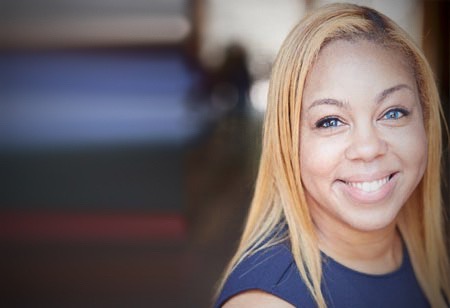Understanding and tapping into your personal influence at work and in life

One of the biggest roadblocks to elevating success can be standing in our own way.
In a world where we are constantly comparing our mundane Mondays to everyone else’s highlight reels on social media, it can be easy to feel like we don’t have what it takes to stand up and make our voices heard. And even when we do find the confidence to stand up, how will what we have to say be received? Whether we are attending an important meeting and want to contribute, or formulating the perfect post to illustrate our thoughts, we tend to fear that our perspective will be overlooked or judged. It’s a universal feeling, and it can pack a big gut punch.
Self-doubt is a powerful seed that can spread quickly in our subconscious and prevent us from harnessing our personal influence and power.
Before it takes root and prevents you from achieving your next goal, there are tools you can use in your professional and personal life that will elevate your ability to communicate your ideas and objectives to those around you. In fact, social psychologists have been studying these concepts for decades, and once you understand your influence, you can open up the professional doors that often feel locked to you, but were maybe just stuck all along.
Faculty member in the Graduate School of Business at Stanford, Deborah Gruenfeld, teaches in the organizational behavior group and helps students understand the psychology behind power and powerlessness.
One of the most common misconceptions about power? Thinking of it in terms of something that only other people have.
“We tend to think of powerful people as famous people, wealthy people, the president of the United States, or the head of some other government,” Gruenfeld says. “But those of us who study power understand that every relationship has power in it. So to the extent that in our relationships we need one another in order to accomplish our goals, we have the ability to influence one another to do things that we care about because we want the relationship to be successful and we need one another.”
Social psychologist and tenured professor of organizational behavior at Cornell, Vanessa Bohns, knows a thing or two about the concept of stepping into your power, too. Her research is helping us learn effective, science-backed ways we can take the reins in our lives.
Spoiler alert, you already have all the influence you need. You just need to harness it.
“The next time you go to ask for something, whether you’re asking someone for help or negotiating a raise, instead of assuming you will need to get past “no,” start by assuming the other party will say “yes”. Not only is that actually a likelier scenario than we tend to assume, but it will also set the right tone for how you ask, helping you to avoid asking in self-defeating ways or negotiating yourself down before you even begin the actual negotiation,” says Professor Bohns.
With a Ph.D. in Psychology from Columbia and an AB from Brown, her first book You Have More Influence Than You Think demonstrates how people see us, listen to us, and agree to do things for us much more than we realize — for better, and worse.
“In one study, we had participants go out and give random strangers compliments,” Bohns says. “Before they did this, they guessed how good those compliments would make the other person feel, and then we had the complemented individuals take a survey to tell us how good they actually felt. Not only did our participants underestimate how much a simple compliment would mean to the other person and how good it would make them feel, they actually thought the other person would feel more awkward and annoyed by the compliment than they actually reported feeling.”
While it can seem a daunting task to recognize, embrace, and truly believe in our personal influence, it can be achieved by unlearning old ways of thinking. Harvard Business Review Contributor and Singularity University Adjunct Faculty Member Mark Bonchek describes unlearning as a three-step process:
- Recognize that the old mental model is no longer effective. This is a challenge because we are usually unconscious of our mental models. We have built our reputations and careers on the mastery of these old models. Letting go can seem like starting over and losing our sense of self.
- Create a new model that can better achieve your goals. At first, you will probably see this new model through the lens of the old. For example, many companies are ineffective in their use of social media because they still think of it as a channel for distributing a message. They haven’t made the mental shift from one-to-many to many-to-many.
- Ingrain new mental habits. This process is no different from creating a new behavioral habit, like your diet or golf swing. The tendency will be to fall back into the old way of thinking and therefore the old way of doing.
Once you are able to unlearn old ways of viewing your own power and influence, you will begin to understand you matter more than you once realized. Your interactions will begin to become more intentional, and the response you generate will likely surprise you. Perhaps as you step into the leader you were always meant to be, you can give others around you the gift of seeing their true sense of worth, too.

Photo from PxHere








Get Professor Vanessa Bohns’ first book, “You Have More Influence Than You Think,” on our Bookshop.org:
https://bookshop.org/a/80615/9781324005711